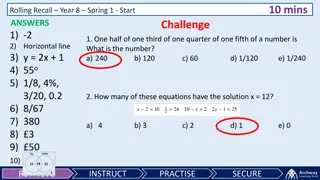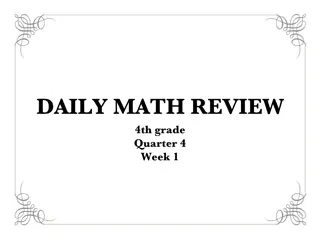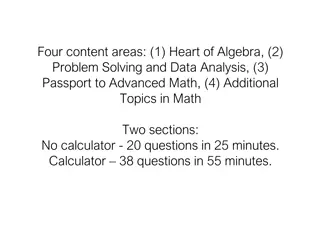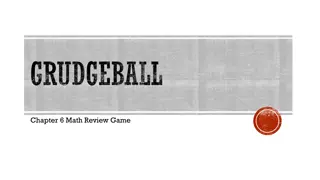
Understanding Scientific Notation and Significant Figures
Learn how to convert numbers into scientific notation, determine the correct number of significant figures, and apply them in measurements and calculations. Understand concepts such as density calculations through practical examples.
Download Presentation

Please find below an Image/Link to download the presentation.
The content on the website is provided AS IS for your information and personal use only. It may not be sold, licensed, or shared on other websites without obtaining consent from the author. If you encounter any issues during the download, it is possible that the publisher has removed the file from their server.
You are allowed to download the files provided on this website for personal or commercial use, subject to the condition that they are used lawfully. All files are the property of their respective owners.
The content on the website is provided AS IS for your information and personal use only. It may not be sold, licensed, or shared on other websites without obtaining consent from the author.
E N D
Presentation Transcript
Convert into Scientific Notation: 0.00856
Convert into Scientific Notation: 375000
How many Sig Figs? 1.00
How many Sig Figs? 1150
How many Sig Figs? 0.005
201 + 4.23 **Use correct Sig Figs
111.0 x 40.235 *Use Correct Number of Sig Figs
7.2 7.14 Use correct number of sig figs
What is the correct measurement using sig figs?
A 16.1 g sample of platinum has a volume of 0.750 mL. What is the Density?
A student measures the mass of a sample of metal to be 46.98 g. The student places the sample into a graduated cylinder containing 40.00 mL of water. The water then rises to 44.20 mL. What is the density of the metal?
46.98/(44.20-40.00)= 11.19 g/mL
What is the percent error in a measurement of the boiling point of naphthalene as 231.0oC, given that the literature reports the value as 217.9oC?
How many cm are in 34 yards? (1 yd = 3 ft) (1 in = 2.54cm)
34 yd 34 yd 3 ft 3 ft 12 in 12 in 2.54 cm 2.54 cm 1 yd 1 ft 1 in = 3108.96 =3100 cm (need 2 sig figs) =3100 cm (need 2 sig figs)
300 km 300 km 1000 m 1000 m 1 km 100 cm 100 cm 1 m =30000000 cm = 3 x 107cm
How many feet are in 78.0 cm? (1 in = 2.54 cm)
78.0 cm 78.0 cm 1 in 1 in 2.54 cm 12 in 1 ft 1 ft =2.559055118 =2.56 ft =2.56 ft






















